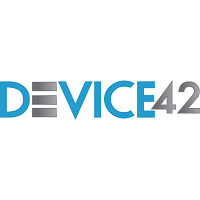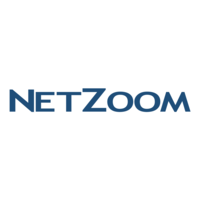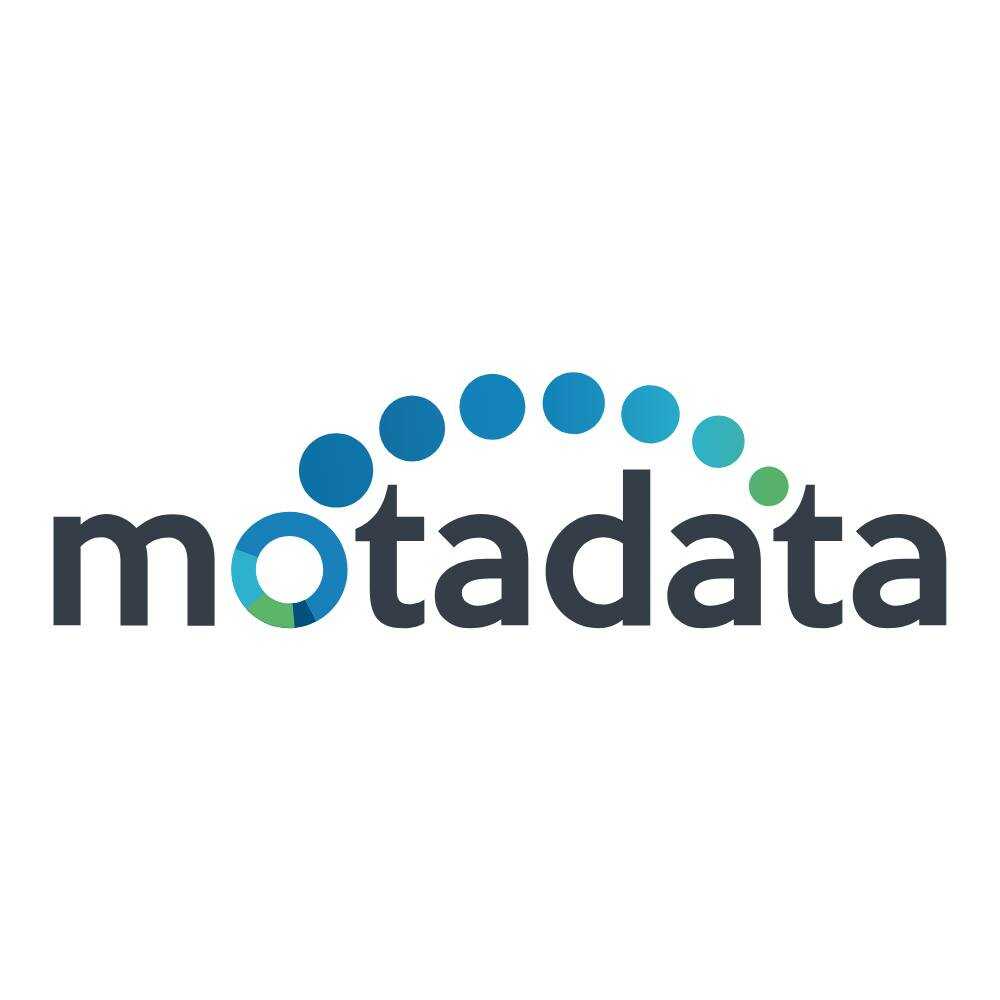What Is Data Center Management Software?
A vital tool for contemporary companies that rely significantly on technology is data center management software. It is a complete solution that aids businesses in effectively managing and keeping an eye on their data center operations. Fundamentally, data center management software enables companies to automate, optimize, and control every part of a data center, including networking, storage, hardware, and software.
Simplifying a data center's operational procedures and workflows is one of the main purposes of data center management software. It gives administrators a unified platform to keep an eye on and control every part of their data center infrastructure, including networking hardware, servers, storage, and even virtual machines. This lowers the possibility of human error in addition to increasing overall efficiency.
Additionally, data center management software provides a number of monitoring and reporting features that let companies learn more about the performance of their data center and spot possible problems before they become serious ones. In the event of any irregularities, it may provide real-time alerts and notifications by tracking and analyzing vital parameters like temperature, power consumption, and network traffic.
The ability of data center management software to automate specific procedures and operations, such managing backups, changing firmware, and provisioning servers, is another essential feature. As a result, IT workers have less work to do and may concentrate on more strategic projects rather than standard maintenance duties. Businesses can optimize their data center resources with the use of data center management software.
Businesses can lower their overall hardware expenses by making the most of their servers, storage, and networking equipment with capabilities like virtualization management. Additionally, by using usage trends to predict and anticipate future data center requirements, it helps firms make sure they have the resources they need to support corporate expansion.
What Are The Recent Trends In Data Center Management Software?
The increasing need for effective and efficient data center administration has led to major updates and modifications in data center management software in recent years. Buyers should be aware of the following recent developments in data center management software:
1. Transition To Cloud-Based Technologies: The move to cloud-based solutions is one of the most significant developments in data center management software. Instead of being restricted to a physical location, this makes it easier to access and administer data centers from any location.
2. Combining Machine Learning And Artificial Intelligence: Artificial intelligence (AI) and machine learning (ML) are now integrated into data center management software to enhance automation, decision-making, and problem-solving. These technologies are capable of optimizing data center operations, forecasting possible problems, and analyzing vast amounts of data.
3. A Focus On Security: Data center security has become a significant priority due to the increase in cyber threats. Consequently, more robust and sophisticated security features like encryption, multi-factor authentication, and intrusion detection systems have been incorporated into data center management software.
4. Consolidation And Virtualization: Data center management software has included virtualization and consolidation features in response to the growing need for scalability and cost-effectiveness. These lessen the physical footprint of data centers and enable the effective use of server resources.
5. Utilizing Analytics And Real-Time: Monitoring Data center management software now incorporates real-time monitoring and analytics to offer insights into the availability, performance, and overall health of data centers. By enabling preventive maintenance and troubleshooting, these features save downtime and increase productivity.
6. Using Agile And DevOps Methodologies: The DevOps and Agile approaches, which encourage cooperation and ongoing development among data center teams, have also been included into data center management software. This makes it possible to implement upgrades and enhancements more quickly, which results in data center operations that are more streamlined and effective.
Benefits Of Using Data Center Management Software
Businesses that run data centers need data center management software because it offers a centralized platform for automating and streamlining a variety of functions and procedures. It is now nearly impossible to run data centers without the usage of specialized software due to their growing size and complexity. Every customer should take into account the following main advantages of utilizing data center management software:
1. Increased Efficiency: Enhanced efficiency is one of the primary advantages of data center management software. It automates repetitive processes that would normally need human labor, such provisioning and monitoring. This lowers the possibility of human error in addition to saving time.
2. Enhanced Reliability: Data center management software continuously assesses the system's functionality and health, spotting any problems or irregularities that can result in interruptions or outages. IT staff can react and fix possible issues fast with real-time warnings and notifications, guaranteeing optimal uptime and system dependability.
3. Cost Savings: Data center management software can drastically cut expenses for companies by automating operations and optimizing resource allocation. It provides a cost-effective solution for data center management, from lower energy consumption to labor cost savings.
4. Scalability: Any company that runs a data center is aware of the difficulties in adjusting operations to accommodate fluctuating demand. With features like resource pooling and auto-provisioning, data center management software greatly simplifies this process and allows companies to expand their data center operations with ease.
5. Improved Security: Data centers are frequently the target of cyberattacks, and a breach might have disastrous results. Advanced security capabilities included in data center management software keep an eye on possible threats to the system and safeguard important data, guaranteeing its confidentiality and integrity.
6. Compliance: As data privacy laws get more stringent, companies now place a high premium on compliance. Businesses can more easily comply with regulatory standards thanks to data center management software's features like audit tracking and compliance reporting.
7. Centralized Management: To oversee every facet of the data center, data center management software offers a single, cohesive dashboard. This makes management easier and lowers the possibility of mistakes because IT teams are no longer need to jump between various tools and interfaces.
Important Factors To Consider While Purchasing Data Center Management Software?
Maintaining operational effectiveness and guaranteeing the safety and security of your data depend on your company's choice of data center management software. It can be difficult for consumers to choose wisely when there are so many options on the market. We have put up a list of crucial elements to take into account when buying data center management software to assist you in navigating this process.
1. Scalability: Your data center requirements will probably grow as your company expands. Selecting software that can readily evolve to meet your company's expanding needs is crucial. This will spare you the trouble of later needing to change software programs.
2. Functionality: Give top priority to the features and capabilities that are essential to your particular company requirements. Seek out software that provides a wide range of functions, including automated processes, asset management, and server monitoring.
3. Integration Capabilities: You should be able to easily link your data center management software with your current apps and systems. This will guarantee seamless data transmission and avoid any interruptions to your operations.
4. Security: Keeping your data safe should be your first concern. To protect the privacy and integrity of your data, look for software that provides encryption, authentication, and frequent backups.
5. User Interface: The program should have an intuitive user interface that is simple to use and comprehend. This will lower the likelihood of operational errors and save time and money on staff training.
6. Reporting And Analytics: Having tools that can analyze and present data in a meaningful way is essential given the growing volume of data that businesses collect. To acquire important insights into your operations, look for software that provides customisable analytics and reporting options.
7. Technical Help: If you have any questions or worries, choose a software program from a business that provides trustworthy technical help. This will guarantee that technological issues won't interfere with your data center's operations.
8. Cost: Finally, take into account the software's price. Although choosing a less expensive option could be alluring, it's crucial to take the software's ROI and long-term advantages into account. Select software that provides the most return on investment.
What Are The Key Features To Look For In Data Center Management Software?
Effectiveness and efficiency in data center management depend on having the appropriate software. Choosing the finest option can be overwhelming for purchasers due to the abundance of options available in the market. These are the main characteristics of data center management software that will help you make an informed choice.
1. Centralized Management: Seek software that offers a single platform for controlling servers, networks, storage, and apps, among other components of your data center. All resources may be easily and effectively controlled and monitored in one location thanks to this functionality.
2. Automation: To reduce human error and streamline processes, automation is essential. To save time and money, look for software that automates processes like deployment, configuration, and monitoring.
3. Scalability: Your data center expands along with your company. Selecting software that is scalable and can change to meet your evolving demands without sacrificing speed is crucial.
4. Real-Time Monitoring: Software for data center management should offer real-time alerting and monitoring for important elements including resource usage, network traffic, and server uptime. This feature aids in the proactive detection and resolution of possible problems before they develop into significant ones.
5. Security: Because data centers store valuable and sensitive information, they are susceptible to cyberattacks. To protect your data, pick software that has strong security features like encryption, access control, and vulnerability scanning.
6. Customization: Since each data center is different, software ought to be adaptable to your particular needs. Choose software that gives you the ability to customize dashboard views, report production, and workflows to suit your company's requirements.
7. Integration: To prevent incompatibilities and guarantee seamless operations, your data center management software should be smoothly integrated with your current tools and systems. You may select the best data center management software for your company's requirements by keeping these essential aspects in mind. To pick the best choice, consider aspects like cost, customer service, and usability.
Why Do Businesses Need Data Center Management Software?
Businesses of all sizes that depend on the effective operation and functioning of their data centers need data center management software. Effective data center administration is now more important than ever as businesses continue to digitize their operations and rely on massive amounts of data. Data loss or outages can lead to serious financial losses, tarnished reputations, and missed opportunities in the fast-paced commercial world of today. However, why is data center management software necessary for businesses? Now, let's examine the specifics.
1. Centralized And Simplified Administration: Fundamentally, data center management software enables companies to centralize and automate the administration of their data center infrastructure. This implies that a single dashboard can be used to manage and keep an eye on every component of the data center, including servers, storage devices, networking, and security. By eliminating the need for companies to use various technologies, this centralized and simplified approach streamlines the management process and lowers complexity and error risk.
2. Make The Most Of Your Resources: Businesses may improve resource utilization by using data center management software, which gives them vital insights into how their data centers operate. Businesses can lower expenses, boost productivity, and boost return on investment by locating and removing unused resources and balancing workloads. Furthermore, real-time monitoring and warnings are provided by data center management software, enabling companies to take proactive measures to resolve any problems that can affect resource utilization.
3. Improved Compliance And Security: Businesses are under tremendous pressure to secure their data as data breaches become more frequent. Data center management software, which offers enterprises extensive security capabilities, is essential to accomplishing this. These consist of, among other things, firewalls, vulnerability screening, intrusion detection, and data encryption. Businesses may guarantee regulatory compliance and safeguard sensitive data by having real-time monitoring and protection capabilities for the data center.
4. Better Resilience To Disasters: Businesses must promptly restore their operations and data in the case of a calamity. Businesses can minimize downtime and data loss by utilizing data center ma`nagement software's disaster recovery features, which include data backup, replication, and failover. Additionally, the software lets companies evaluate their disaster recovery plan on a regular basis to make sure it is reliable and strong.
5. Futureproofing and Scalability: Businesses require an adaptable data center as their operations expand and their data requirements rise. Businesses can rapidly and effectively scale their infrastructure with data center management software, guaranteeing that it can meet their future demands. Businesses can also benefit from new technology and maintain their competitiveness in their sector thanks to this scalability.
How Much Time Is Required To Implement Data Center Management Software?
The amount of time needed to establish data center management software varies depending on a number of factors, including the data center's size, software complexity, and degree of customization needed. The software's complete implementation and integration with the data center's operations could take a few weeks to several months on average.
Depending on the data center's size and complexity, the initial setup and configuration may take a few days to a few weeks. Installing the program, defining user accounts and permissions, and setting up any required system integrations are all included in this. To guarantee a seamless implementation process, the data center's infrastructure must be meticulously planned and mapped out at this phase.
Data migration comes next when the basic setup is finished. This entails moving current data from outdated systems to the updated software. The quantity and complexity of the data can have a significant impact on how long this stage takes. Making sure the data is transported accurately and without loss or corruption is essential. Following data migration, the program must be tested and set up to meet the data center's unique requirements.
Testing various scenarios, workflows, and configurations to make sure the software is operating properly and fulfilling the needs of the data center can take several weeks. The software can be installed and made available to the data center's operations after all required setups and testing are finished. The intricacy of the data center's operations and the staff's learning curve for the software will determine how long this phase takes.
It is crucial to remember, nevertheless, that the software deployment is not the end of the implementation process. For the software to be successfully adopted and used, ongoing training and support are essential. Depending on the degree of assistance offered by the software provider and the skill level of the data center employees, this could take many weeks or even months.
What Is The Level Of Customization Available In Data Center Management Software?
Businesses can adapt data center management software to their own requirements and architecture by choosing from a range of customization choices. These modifications enhance performance and efficiency while streamlining data center operations. First of all, users can design and customize dashboards, reports, and alarms using data center management software according to their own needs.
This makes it possible for companies to keep an eye on and measure the indicators that are most important to their operations, like data storage, network traffic, and server utilization. Additionally, the majority of data center management software has the ability to automate operations and modify workflows. This implies that companies can establish protocols that complement their particular workflows, lowering the possibility of mistakes and boosting output.
Additionally, a number of connectors and APIs are frequently included with data center management software, enabling companies to link the program to other systems and tools that are utilized in their data center. A smooth flow of data and information is made possible by this degree of integration, which boosts productivity and makes management duties easier. Additionally, data center management software can be tailored to satisfy particular compliance and security needs.
These include features that give organizations piece of mind that their data is safe and compliant, like audit trails, encryption, and role-based access control. Finally, to further increase the degree of customisation, some data center management software gives companies the ability to create their own plugins or add-ons. This enables companies to meet any special demands or specifications that the program does not already provide.
Which Industries Can Benefit The Most From Data Center Management Software?
For companies of all sizes and sectors, data center management software has become a vital tool. With the help of this software, businesses can effectively manage their data centers, guaranteeing cost-effectiveness, performance, and security. Data center management software, however, can be more advantageous for some businesses than others. The industries that stand to gain the most from data center management software will be covered in this buyer's guide.
1. Information Technology (IT) Industry: Without a question, the most notable user of data center management software is the IT industry. IT organizations can use this software to optimize data center efficiency, decrease downtime, and boost overall productivity because they constantly need to manage enormous volumes of data. Data center management software provides IT organizations with a complete solution for their requirements, ranging from infrastructure and server management to application performance monitoring.
2. Financial Services Sector: The financial services sector prioritizes security since it handles sensitive data, including customer information and financial transactions. Data center management software is a perfect fit for the financial services sector because it offers sophisticated security features including threat detection, encryption, and access control. Financial firms can use this software to improve productivity and reduce expenses by streamlining the operations of their data centers.
3. Healthcare Business: Having a dependable and well-managed data center is essential for the healthcare business, which gathers and retains enormous amounts of patient data. By monitoring and managing their IT infrastructure, healthcare institutions can make sure that patient data is safe and available when needed with the use of data center management software. Furthermore, the analytics and reporting features of the program can assist medical professionals in making well-informed decisions on patient care.
4. Government And Public Sector: These sectors handle enormous volumes of data, including private citizen information. These businesses can effectively manage their data centers with the help of data center management software, which guarantees data security and regulatory compliance. Government organizations can also lower operating expenses and enhance the functionality of their IT infrastructure with this software.
5. E-commerce Sector: To handle sales, client data, and inventories, the e-commerce sector significantly depends on data. E-commerce businesses may guarantee a flawless client shopping experience by streamlining their data center operations with the aid of data center management software. E-commerce companies can also detect and fix any problems with their website or application using the software's monitoring features, which will decrease downtime and boost sales.
Conclusion
To sum up, data center management software is essential to the seamless and effective running of data centers. Data centers are becoming larger and more complicated as technology develops, making manual management more difficult. Data center management software, which offers all-inclusive solutions for tracking, automating, and improving data center operations, can help with this.
Scalability, customisation, integration capabilities, and support services are some of the most important considerations when buying data center management software. It is crucial to evaluate the unique needs and objectives of your company and select software that can satisfy those needs. The software's cost-effectiveness is another important factor to take into account.
Even if the market may offer a variety of possibilities, it is crucial to choose software that delivers a fair return on investment and good value for the money. Additionally, picking a trustworthy software provider with a solid track record in the field is essential. This will guarantee that you get dependable, superior software with ongoing support and upgrades.
In conclusion, any company that has a data center needs data center management software. It can increase productivity, decrease downtime, and eventually help your company succeed as a whole. You may optimize your data center operations and get measurable outcomes by carefully evaluating your needs and choosing the appropriate software. We hope that this buyer's guide has given you useful information to aid in your decision-making.

















